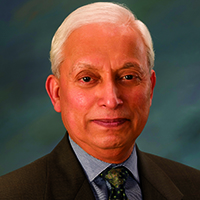
Symposium Supporters
2025 MRS Spring Meeting & Exhibit
Workshop on Materials Opportunities in Microelectronics Packaging and Heterogeneous Integration
Monday, April 7
9:45 am – 5:00 pm
Summit, Level 3, Room 328
This one-day workshop aims to bring together leaders and practitioners from microelectronics packaging to discuss their perspectives on heterogeneous integration, with a focus on materials science. Following speaker tutorials and presentations, ask your questions to a panel of experts and conclude the day chatting with peers at a networking reception.
Heterogeneous integration (HI) involves combining chiplets using package-level interconnects. Unlike traditional system-on-chip (SoC) designs, which consolidate functions onto a single silicon chip, HI disaggregates these functions into smaller chiplets, which are then assembled using wires, solder bumps, micropillars and PCBs. This approach introduces materials such as metals, polymers and composites that are typically outside the fabrication facilities. As monolithic SoCs have grown larger, their yield rates have decreased due to manufacturing defects, leading to a trend toward integrating smaller chiplets through innovative packaging solutions.
The workshop will focus on identifying materials science challenges and opportunities within this new paradigm. For instance, thermal and latency issues may need to be managed over a significantly larger scale—10 to 100 times that of SoCs. Additionally, the diversity of materials and interfaces involved in product realization will increase. These factors will create new process–structure–property relationships, including defectivity, which will impact yield, throughput and reliability.
The networking reception is open to workshop attendees.
Sponsored by: Applied Materials, Inc.
Thank You to our Sponsors

Start | Title | Speaker | Affiliation |
9:45 am | Advanced Packaging for Heterogeneous Integration | Ravi Mahajan | Intel Corporation |
10:30 am | Materials for Electrical and Optical Interconnects Toward Panel Scale | Ning Li | The Pennsylvania State University |
| 11:15 am | Material and Process Challenges for Automotive Chiplet Systems | Tanja Braun | Fraunhofer IZM |
12:00 pm | Break | ||
1:30 pm | Materials Reliability in Power Electronic Packaging | F. Patrick McCluskey | University of Maryland |
2:15 pm | Advancing Packaging Technologies for Soft Electronics | Seung-Kyun Kang | Seoul National University |
2:40 pm | Break | ||
2:50 pm | Cryogenic Wiring Infrastructure for Quantum Systems | Michael Beckley | IBM Research |
3:15 pm | Thermal Metrology and Subsurface Evaluation of Heterogeneously Integrated Microelectronics | Amun Jarzembski | Sandia National Laboratories |
3:40 pm | Break | ||
3:50 pm | Panel: Ravi Mahajan, Intel Corporation, Erik Hadland, Semiconductor Industry Association, Steven Verhaverbeke, Applied Materials, Inc., Nirmal Shankar Sigamani, Lam Research Corporation | ||
5:00 pm | Networking Reception sponsored by AMAT. Summit, Level 5, Overlook | ||
Speakers

Ravi Mahajan
Intel Corporation

Ning Li
The Pennsylvania State University

Tanja Braun
Fraunhofer Institute for Reliability and Microintegration

F. Patrick McCluskey
University of Maryland

Michael Beckley
IBM Research

Seung-Kyun Kang
Seoul National University

Erik Hadland
Semiconductor Industry Association

Amun Jarzembski
Sandia National Laboratories

Steven Verhaverbeke
Applied Materials, Inc.

Nirmal Shankar Sigamani
Lam Research Corporation
Organizers

Stanley S. Chou
Sandia National Laboratories

Subhash L. Shinde
Booz Allen Hamilton
Subhash L. Shinde is a senior technical advisor at Booz Allen Hamilton Inc. in the area of microelectronics packaging and advanced materials. Prior to joining Booz Allen, Shinde served as an associate director at the University of Notre Dame, a research scientist and R&D manager at Sandia National Laboratories and at IBM Research and Microelectronics. He has conducted R&D in high thermal conductivity materials, and thermal management solutions at IBM, initiated nanoscale phonon transport research, and 3D and heterogeneous integration activities at Sandia, and supported development of energy efficient computing-related proposal activities while at Notre Dame. Shinde has organized multiple symposia at Materials Research Society (MRS) meetings in these areas. He has collaborated with the materials and microelectronics communities across academia, industry and National Laboratories, and still enjoys doing so.
Shinde has a PhD degree in materials science from Stanford University. He is a Fellow of MRS, the National Academy of Inventors (NAI) and the Institute of Electrical and Electronics Engineers (IEEE).





